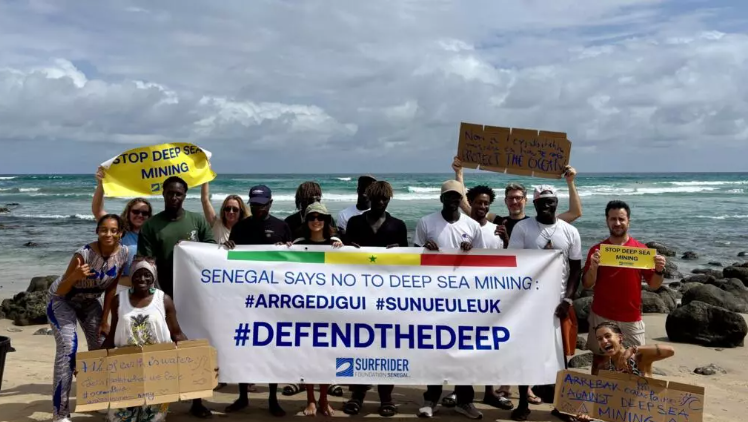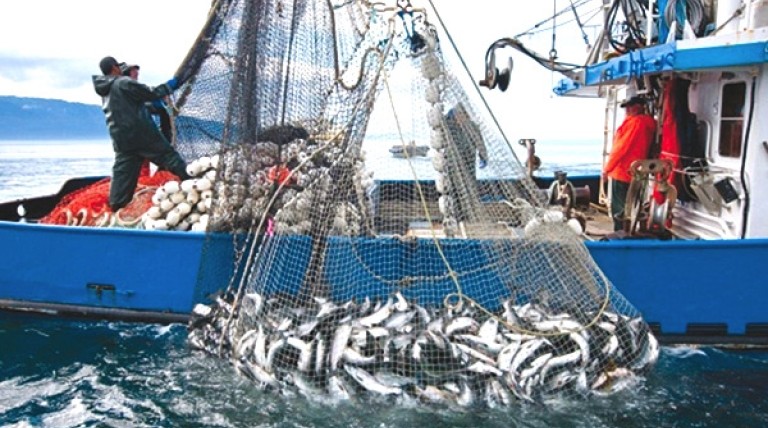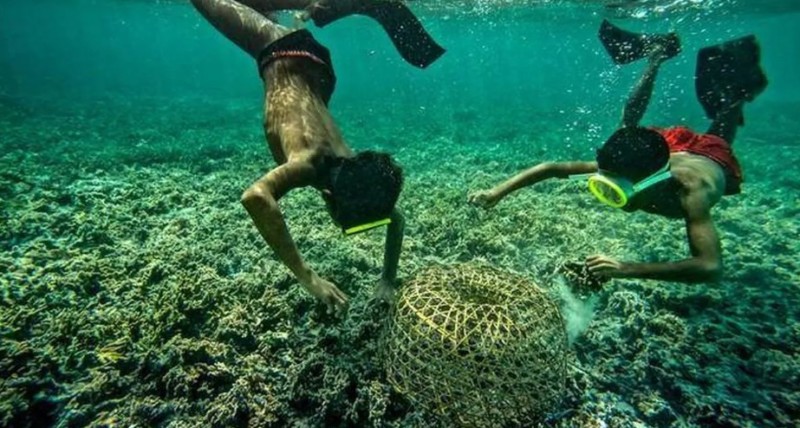In Dakar, environmental activists have decided to take the lead. While the authorization of deep-sea mining techniques is currently under discussion, activists gathered on Sunday, July 20, to raise awareness about the dangers of such exploitation and to put pressure on the Senegalese government.
With our correspondent in Dakar, Juliette Dubois
Manganese, cobalt, nickel… Mining companies are now turning their attention to the deep ocean floor. Deep-sea mining is seen as a way to supply materials for electric vehicle batteries, solar panels, and other clean energy technologies. However, these activities have raised concerns among environmentalists, especially regarding marine flora and fauna. To raise awareness, activists in Dakar organized an event on Sunday, July 20, to highlight the risks of deep-sea mining.
Although this mining technique has not yet been used off the coast of Senegal, Yandeh Sallah Muhammed, a Gambian ocean protection specialist, believes it is better to act early:
“We want to prevent it from happening now. The deep waters themselves are largely unknown. We only have research to tell us what could happen. But, like with any extractive practice, we do not want to find out what will happen afterward—it will completely disrupt marine ecosystems.”
“We only have one ocean, and what happens in one place affects another.”
The Surfrider Foundation organized documentary screenings and talks to raise awareness about deep-sea mining. Similar initiatives took place simultaneously in 27 other countries because all coastal nations could be affected.
“Whether it’s in America, Japan, or anywhere else… We only have one ocean, and what happens in one place will affect another,” emphasizes Yandeh Sallah Muhammed.
The gathering also served as an advocacy effort directed at authorities, as global negotiations are currently underway in Jamaica. The International Seabed Authority must decide whether to approve mining activities. Babacar Thiaw, president of Surfrider Foundation Senegal, wants to apply pressure before any decision is made:
“We are on alert. We can anticipate what might happen in Senegal and show the government that we are watching. And that if someday such plans unfold, we will oppose them. Fishing supports more than one million people in Senegal,” he reminds.
Today, about ten countries have already begun exploring mining opportunities on their seabeds.
Source: rfi




